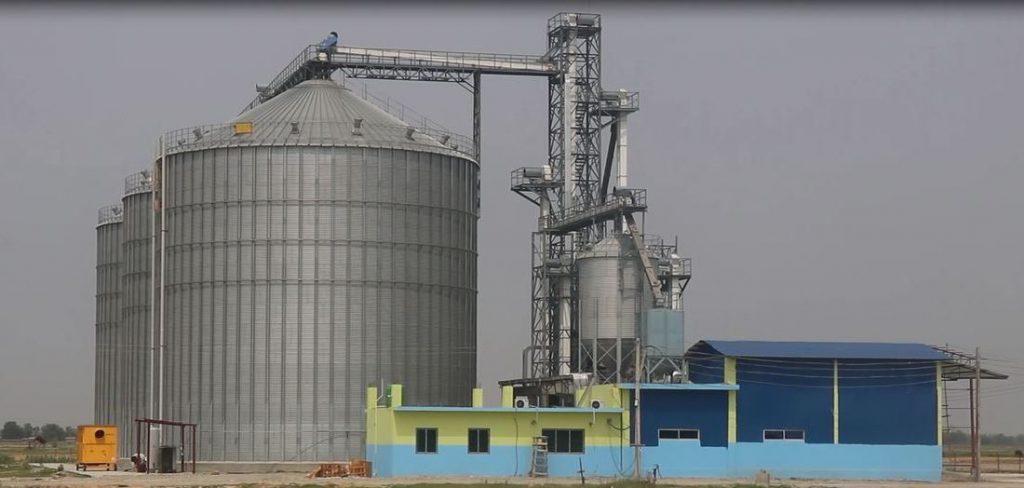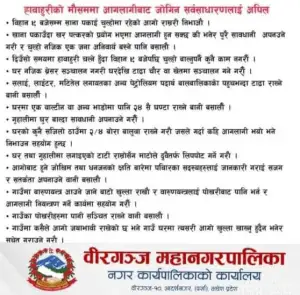
Birgunj: A grain storage facility has been inaugurated in Biruwa Guthi, Parsa, constructed at a cost of NPR 630 million. This facility aims to provide relief to farmers in Parsa, Bara, and Rautahat. The project has been established with the investment of young entrepreneurs from Birgunj.
During a program organized in Birgunj, Samirraj Satyal, the General Manager of Nepal Warehousing Company Limited, shared that the facility is based on “silo technology,” enabling the scientific storage of grains. This technology provides a safe method for grain storage, supporting agricultural commercialization.
Maize Production and Storage in Nepal
Nepal produces approximately 2 million tons of maize annually, while around 400,000 tons are imported each year. Anand Bagariya, the Chairman of the company, stated that the lack of proper grain storage facilities has led to significant losses for farmers. The new storage facility is expected to provide significant relief to farmers.
Advanced Equipment and Technology
According to Director Sadiksha Shrestha, advanced equipment and technology imported from China and Germany are used in the facility. Currently, the main crops stored are wheat, maize, and soybeans, with storage units operational in Sunsari, Parsa, and Kapilvastu.
Convenience for Farmers
Director Satishchandra Shrestha urged traders who buy and sell farmers’ produce to utilize the newly introduced silo storage technology in Nepal. This technology ensures the highest standards of grain safety and preservation.
Nepal Warehousing Company Limited has also arranged for seeds, fertilizers, pesticides, equipment, and other essential items required by farmers under banking and financial management, including collateral management and loss insurance. This provision benefits both small and large farmers, as stated by another director, Pradeep Agrawal.
Reducing Production Loss
Government statistics indicate that the lack of storage facilities results in a 25% loss of farmers’ produce. Agrawal expressed confidence that the new storage facility will ensure the safety of farmers’ produce and reduce losses.
Thus, the grain storage facility constructed in Biruwa Guthi, Parsa, at a cost of NPR 630 million, provides significant relief to farmers through the use of modern technology and equipment. This project plays a crucial role in offering safe storage solutions, thereby protecting farmers’ produce and reducing losses.
Conclusion
Nepal Warehousing Company Limited has launched the grain storage facility using scientific methods to strengthen the agricultural sector and safeguard farmers’ produce. This initiative will bring positive changes to the lives of farmers in Parsa, Bara, and Rautahat and support agricultural commercialization. Farmers can now ensure the safety of their produce and reduce losses significantly.

